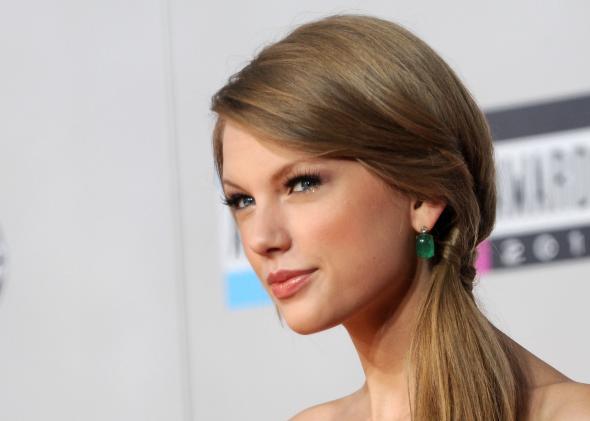Taylor Swift has written an op-ed for the Wall Street Journal about the future of the record business. “There are many (many) people who predict the downfall of music sales and the irrelevancy of the album as an economic entity. I am not one of them,” she declares. What might save the industry? Love, of course. From there on, the piece lets loose a spectacular string of metaphors, similes, and analogies comparing music to affairs of the heart. Which is to say, it’s exactly what you’d want from a Taylor Swift op-ed in America’s most prestigious business newspaper. Its major points:
Artists and labels are just like underappreciated girlfriends.
In recent years, you’ve probably read the articles about major recording artists who have decided to practically give their music away, for this promotion or that exclusive deal. My hope for the future, not just in the music industry, but in every young girl I meet … is that they all realize their worth and ask for it.
People treat music like romance.
The way I see it, fans view music the way they view their relationships. Some music is just for fun, a passing fling (the ones they dance to at clubs and parties for a month while the song is a huge radio hit, that they will soon forget they ever danced to). Some songs and albums represent seasons of our lives, like relationships that we hold dear in our memories but had their time and place in the past.
However, some artists will be like finding “the one.” We will cherish every album they put out until they retire and we will play their music for our children and grandchildren.
And if a couple can stay together for decades by occasionally mixing it up in the bedroom, so too can artists create long-term bonds with their fans.
I think forming a bond with fans in the future will come in the form of constantly providing them with the element of surprise. No, I did not say “shock”; I said “surprise.” I believe couples can stay in love for decades if they just continue to surprise each other, so why can’t this love affair exist between an artist and their fans?
People will pay for music that makes them feel feelings.
I’d like to point out that people are still buying albums, but now they’re buying just a few of them. They are buying only the ones that hit them like an arrow through the heart or have made them feel strong or allowed them to feel like they really aren’t alone in feeling so alone.
Rhetorical curlicues aside, I think Swift—last year’s highest-earning pop artist with nearly $40 million in music sales, digital revenue, and touring, according to Billboard—has a decent point, even if you don’t share her faith in the future of album sales. All current signs suggest that the future of music lies with streaming platforms like Spotify. And streaming rewards not just fandom but fanaticism. In the old days, it didn’t especially matter how many times a fan listened to an album after purchasing it. A sale was a sale. But with streaming services, artists are compensated based on how often their songs are played. Moreover, it takes an enormous number of streams to make a decent profit. Giant hits and old, bankable back catalogs have always been the lifeblood of the music business. Now, they’re even more important. In that context, shooting fans through the heart—which ensures your songs stay on repeat—isn’t the worst business advice.
